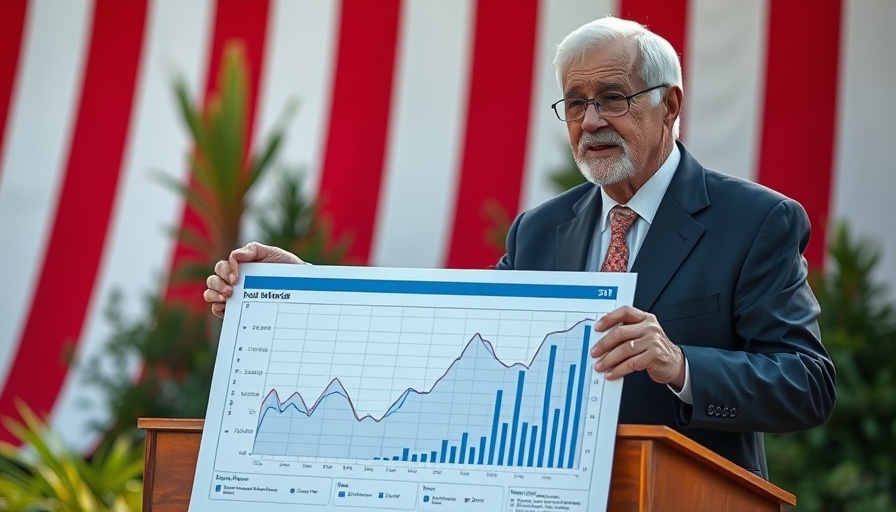
The Decline of Consumer Sentiment: A Growing Concern
The recent decline of the University of Michigan Index of Consumer Sentiment, dropping 11% from March to April, signals troubling times for both consumers and the housing market. Notably, the Index now sits at 50.8, dipping below levels recorded during the Great Recession. This sharp decline illustrates the growing anxieties consumers face regarding their financial future. As economic indicators deteriorate, many are left wondering where we go from here.
The Impact of Tariffs on Consumer Confidence
Fears of a trade war ignited by tariff announcements are at the forefront of this decline. Consumers report experiencing multiple warning signs that raise the risk of recession, according to survey director Joanne Hsu. In her analysis, concerns regarding business conditions, income stability, and inflation continue to diminish consumer confidence. These factors are echoed across all political spectrums, indicating a broader sentiment of apprehension about the economy.
Inflation Concerns Drive Mortgage Rates Higher
As consumer sentiment falls, inflation worries are concurrently pushing mortgage interest rates upward. Investors backing home loans increasingly demand higher yields, reflecting concerns about the rising price of goods and services. The anxiety surrounding perceived inflation suggests that as consumers anticipate climbing costs—6.7% according to recent forecasts—they brace for what this could mean for their purchasing power in the realm of real estate.
Contrasting Signals: Spending vs. Sentiment
Interestingly, despite low consumer sentiment, real-time indicators of spending do not currently indicate a decrease. Economists at Pantheon Macroeconomics maintain that household spending is expected to stagnate rather than drop outright, suggesting a complex narrative where sentiment does not fully correlate with spending behavior. This poses intriguing questions about consumer resilience in the face of economic uncertainty.
The Broader Implications for Home Buyers and Investors
For potential homebuyers and investors, current trends necessitate sharp awareness and strategic planning. Understanding how inflation, tariffs, and consumer sentiment intertwine can provide key insights into timing the market effectively. As mortgage rates rise, it's crucial for buyers to assess their financial readiness and revisit their investment strategies. Factors such as location, property value trends, and local market conditions will play significant roles in determining the best course of action.
Looking Forward: What Lies Ahead?
As the economic climate evolves, understanding these trends becomes vital. With potential tariffs yet to be fully realized in consumer prices, the interplay between inflation and economic growth will be closely monitored. The Federal Reserve anticipates these implemented tariffs may lead to an inflationary spike, complicating the economic landscape further.
In conclusion, it is essential to stay informed about fluctuations in consumer sentiment and their broader implications on financial conditions, particularly as they relate to real estate. Market trends are evolving, requiring consumers, buyers, and investors alike to remain vigilant as we navigate this uncertain terrain.
 Add Row
Add Row  Add
Add 




 Add Row
Add Row  Add
Add 

Write A Comment